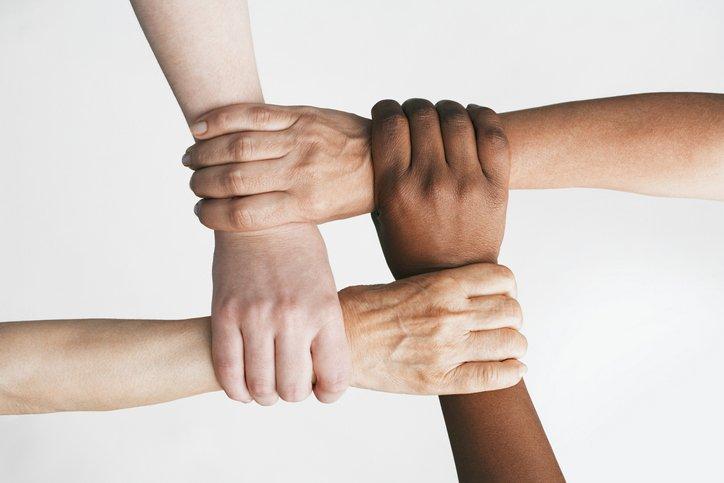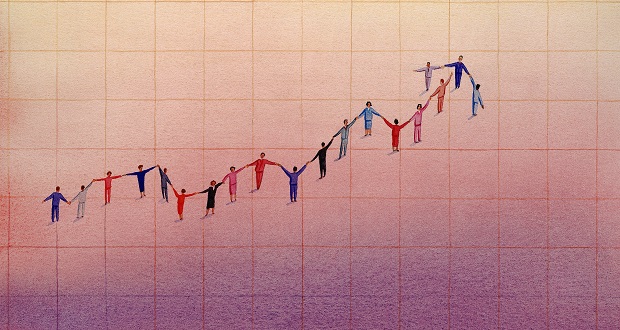
It has been 50 years since Black History Month was nationally recognized and 100 years from its inception. Black people continue to be minimized, terrorized, and excluded in America. Instead of the honor that should be reserved for Black Americans’ pasts, revisionist and incomplete stories continue to emerge.
The College Board, a nonprofit organization that provides tools for entering U.S. higher education, recently released an Advanced Placement course in African American Studies to be piloted by schools. As Juliana Kim at NPR explains, “The purpose of the class is to introduce students to the experiences and contributions of African Americans through a variety of lenses.” However, policymakers in Florida rejected the course citing that it lacked educational value and pushes a political agenda. Specifically, Florida Gov. Ron DeSantis noted problems with the content related to intersectionality, Black literary thought, queer identities, and Black social movements. This rejection is just another form of erasure and invalidation of Black histories and Black people.
As a young Black student, I didn’t learn about the histories or cultures of Black people in school beyond the singular chapter that summarized American chattel slavery and the Civil Rights Movement all in one, as if our stories began and ended with subjugation and strife. So, I relied upon stories from family and books by Black authors that were passed on to me.
In American schools, only 15 percent of 8th graders scored at or above proficient in U.S. history, according to the National Assessment of Educational Progress. Of the content taught in U.S. history and social sciences, only about 8 to 9 percent reflects the experiences and histories of Black Americans. From the founding of this country, to the development of its social and political infrastructure, to the impact of U.S. culture on the world, Black people have been the unspoken subjects, muses, and architects in the American superpower project. Some may question the value of teaching about the social and political experiences of Black Americans in schools; however, how does one tell the full story about this country without including the histories of all its people?
Institutions clamor to the festivities and guest speakers of Black History Month, observed in the shortest month of the year. However, when it comes to recognizing the ways in which Black people have been subjugated and excluded in America, the excitement disappears.
Black people are disproportionately impacted when it comes to policing, housing, wealth, education, health, and other facets of American society. The efforts expended to silence these discussions and revise history are irresponsible at best and reprehensible at worst.
Consider also the attacks on The 1619 Project, a collection of essays that discuss the histories of Black people in America, and critical race theory, an academic approach to analyzing systemic racism. The realities and histories of Black Americans are often barred from critical, public discourse to protect white feelings against guilt and discomfort about America’s past. What many fail to realize is that the legacy of America’s past, like the enslavement of Black people, Jim Crow, and the exploding prison industrial complex, is ever-present.
Black History Month — as historian Carter G. Woodson envisioned it — is a time to recognize the contributions and histories of African American and Black people to America. But political correctness and post-racial newspeak have whitewashed and relegated the month to office potlucks and fading commitments. The College Board’s release of the AP African American Studies course would provide an opportunity to enact Woodson’s mission by extending that learning to the schooling environment.
Despite what some critics might say, AP African American Studies should be taught in schools because Black history is American history.
In a study conducted by the Pew Research Center, it was noted that 43 percent of Black Americans learn about Black history from people in their communities and about 50 percent reported that they were very knowledgeable about Black history. Black culture and experiences are woven into the very fabric of this country, so to only share part of our stories and exclude them from the broader context of American history is to the detriment of all Americans. Telling the complete story requires that we take the bad with the good.
Imagine that it has been decided to ban the singing of “The Star-Spangled Banner” because the song tells of a war-torn country and the demise of one power for the rise of another. Just like remembering the struggle for freedom in the birth of America, remembering the persistent struggle Black people face is integral and inextricably linked to this nation’s roots.
Black History Month should not be the only time that we learn and think about the contributions and experiences of Black Americans. Black people have contributed to every aspect of American society, culture, and politics, so telling our histories is about more than recognition —it’s about honoring our humanity and respecting our right to call America home. Learning about Black history provides a fuller, culturally inclusive perspective of America.
Black history is for everyone, every day of the year. So this year, extend your celebration beyond February with learning and recognition of Black history throughout the year. Challenge your biases about Black people. Read books by Black authors. Watch films by Black screenwriters. Support Black businesses. Let Black people share their histories, and listen.


















